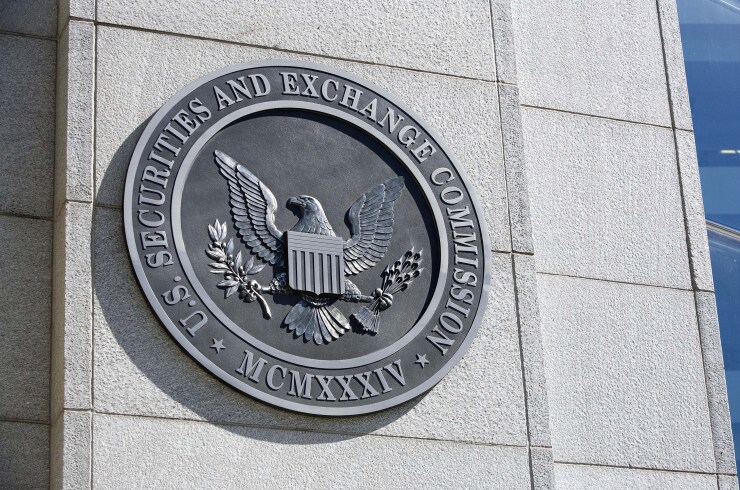The Securities and Exchange Commission and the Public Company Accounting Oversight Board have been lightening the load on audit firms, with the SEC initiating only one enforcement action against auditors in the third quarter of the year, according to a new report.
The
"After several months of uncertainty, the third quarter of 2025 marked a defining inflection point for auditor oversight in the United States," said the report. "With leadership changes at both agencies signaling a shift away from the aggressive enforcement posture that characterized the Gensler/Williams era, Q3 activity provided the first clear indications of how the new administration's priorities may reshape the regulatory landscape."
The report noted that during Q3, the PCAOB's continued existence came under threat by a proposal to dissolve the PCAOB through President Trump's "One Big Beautiful Bill." But the PCAOB received a reprieve when the
Other big leadership changes and developments occurred this year, including the appointment of a new
"Together, these events signal a shift away from the aggressive enforcement posture that characterized prior SEC and PCAOB administrations and point to a realignment of priorities," said Alison Forman, a principal in the Brattle Group's Chicago office and co-leader of the firm's accounting practice.
Ongoing constitutional challenges have only added to the regulatory uncertainty at the SEC and the PCAOB, the report noted. The Supreme Court's June 2024 decision in the case of SEC v. Jarkesy limited the SEC's use of administrative proceedings, along with parallel "John Doe" challenges to the PCAOB's disciplinary process, raising questions about both agencies' adjudicatory authority. Those developments could have contributed to lower auditor-related enforcement activity during Q3 and fundamentally change how future cases are brought and resolved.
From Q1 through Q3 2025, the PCAOB and SEC together imposed total monetary sanctions of $17.7 million on auditors and audit firms, according to the report. In comparison, monetary sanctions in the first nine months of 2024 totaled $51.1 million. The PCAOB imposed all but $230,000 of the total penalties.
The PCAOB levied penalties of more than $17.4 million in the first three quarters of 2025, more than the total amount of annual penalties imposed by the PCAOB every year except 2023 and 2024, but all but $100,000 was imposed prior to former Williams's resignation on July 22.
Most of the penalties hit firms in other countries. Nearly two-thirds of Q1–Q3 2025 penalties ($11.25 million) were imposed on four foreign affiliates of Big Four firms for violations related to improper answer sharing. Nearly 20% of Q1 through Q3 2025 penalties ($3.4 million) were levied on nine foreign affiliates of a Big Four firm for allegedly inaccurate Form APs, Auditor Reporting of Certain Audit Participants, in violation of the PCAOB's Rule 3211. Two auditing firms were required by the PCAOB to procure an independent consultant to review and make recommendations about the firms' systems of quality control.
PCAOB priorities
The report's release comes as the PCAOB hosted a two-day gathering this week of the International Institute on Audit Regulation, in Washington, D.C. The PCAOB's acting chair, George Botic, discussed two of the emerging concerns of the PCAOB during a
"These trends have the potential to transform auditing as we know it and require our continued attention," he said. "First, private equity investments and other alternative financing arrangements in accounting firms are reshaping ownership structures. These investments can be used to acquire advanced technologies, streamline operations, and assist in attracting and retaining professionals, which can lead to enhanced audit quality. But there are concerns from regulators and standard-setters around the globe."
Botic pointed out that this summer, the International Ethics Standards Board for Accountants
"I, too, have my own concerns that the private equity model focused on short-term ownership and possible cost-savings may change long established incentive structures and behaviors within accounting firms and may, over time, undermine the core principles of audit quality," said Botic.
However, he added that he recognizes that many accounting firms now face additional demands for capital that need to be met to remain competitive, and those demands may not be achieved through the traditional partnership structure.
"As regulators, we must ensure our oversight remains vigilant as this trend continues," said Botic. "This vigilance requires engagement with all stakeholders, and in particular, it requires encouraging academic research to ensure we have a comprehensive understanding of not only the challenges and risks, but also the benefits of these investments and structures."
On the subject of AI, Botic cited a recent
"A challenge then lies in the deployment of this technology and what exactly it is being used for," said Botic.
He also cited another
"As AI tools begin to influence judgments traditionally made by humans, auditors must grapple with how to preserve due professional care, professional skepticism, independence, and accountability in a rapidly changing digital landscape," said Botic.






